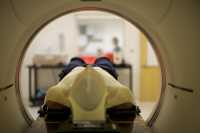Author Interviews, Emory, Health Care Systems, JAMA, Kidney Disease, Transplantation / 11.09.2019
Disparities Persist Between Kidney Transplantation and Dialysis Facility Ownership
A retraction and replacement have been issued due to a major coding error that resulted in the reporting of incorrect data in this study surrounding the difference in transplant rates between for-profit and non-profit dialysis centers. Please see link below:
MedicalResearch.com Interview with:
Rachel Patzer, PhD, MPH
Associate Professor
Director, Health Services Research Center
Department of Medicine
Department of Surgery
Emory University School of Medicine
MedicalResearch.com: What is the background for this study?
Response: We know that historically, for-profit dialysis facilities have been shown to have lower rates of kidney transplantation than patients who receive treatment in non-profit dialysis facilities. However, these studies are outdated, and did not examine access to living donor transplantation or include the entirety of the end-stage kidney disease population (more…)






























